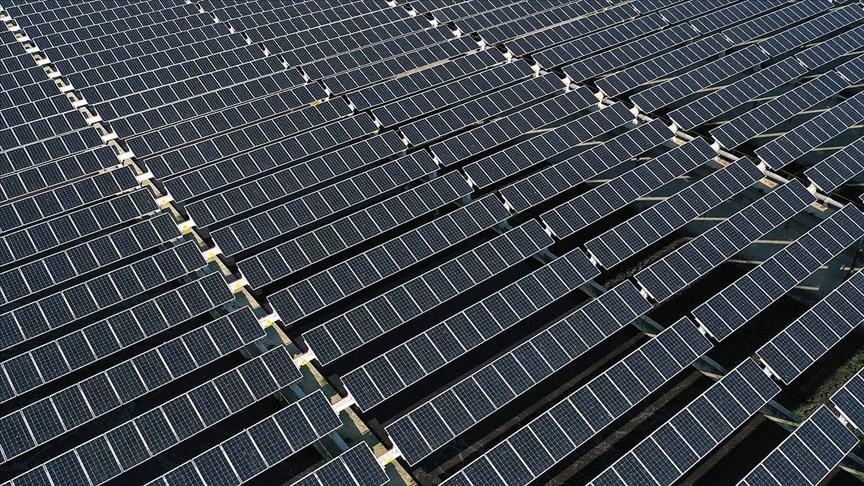The increase in Turkey's solar energy capacity is expected to reach over 100% this year, the head of the Turkish Solar Energy Industry Association, GENSED, told Anadolu Agency on Monday.
Capacity additions this year are forecast at 1,500 megawatts compared to 2020 when just 672 MW was added due to disruptions in the global supply chain from the COVID-19 pandemic.
With last year's additions, Turkey's total solar power capacity reached 6,667 MW at the end of 2020.
"The share of solar power in Turkey's total electricity generation stood at 4% last year. In 2021, we expect 1,500 MW capacity to be constructed and the share of solar in total electricity generation to rise to over 5%," Halil Demirdag, head of GENSED said.
According to the International Energy Agency, an increase in global solar capacity is estimated at around 200 gigawatts (GW) in 2020, marking a 4% year-on-year rise.
Demirdag recommended full utilization of Turkey's solar power potential to help Turkey reduce its energy import bill and contribute more to climate change action.
In that regard, he noted that Turkey will receive applications for 1,000 MW of mini Renewable Energy Resources Zones (YEKA) tenders between March 8-12, 2021.
This year, 74 mini YEKA tenders are expected to be held in 36 districts across the country.
Turkey, which is highly dependent on imports for its natural gas and oil needs, has seen strong growth in renewable energy capacity to 49,500 MW in the last few years, reaching more than half of the total installed power capacity of 95,000 MW.
"With its advantageous geographical location, our country has huge hydropower potential but in times of drought when hydropower generation falls, Turkey needs to rely on natural gas and coal power.
"We see solar as a great stabilizer for hydropower plants when constructed in a hybrid way," Demirdag said, explaining that because hydropower plant transmission infrastructure is already in place, solar plants can be swiftly installed adjacent to hydropower to complement capacity additions.
"When they become online, such projects could help alleviate Turkey’s need for imported energy sources in times of drought," Demirdag said.
He also advocated using solar power to help Turkish exporters avoid carbon tax in exports to Europe.
-Solar offers solution to exporters in reducing carbon footprint
Under the European Union's (EU) Green Deal, exporters to EU countries need to prove carbon neutrality on cross border trade to avoid carbon taxes.
With the EU’s aim to be climate neutral in 2050, the Green Deal provides an action plan to boost the efficient use of resources by moving to a clean, circular economy and restore biodiversity and cut pollution.
The EU market is important for Turkish exporters, accounting for almost half of Turkey's total export volume, chiefly to Germany, Italy and the UK, Demirdag said. "No Turkish exporter can risk losing the European market."
According to Demirdag, Turkish industrialists will be able to reduce their carbon footprint by installing their own solar plants for their manufacturing processes, contributing greatly to Turkey’s increased use of solar capacity.
By Nuran Erkul Kaya and Gulsen Cagatay
Anadolu Agency
energy@aa.com.tr


